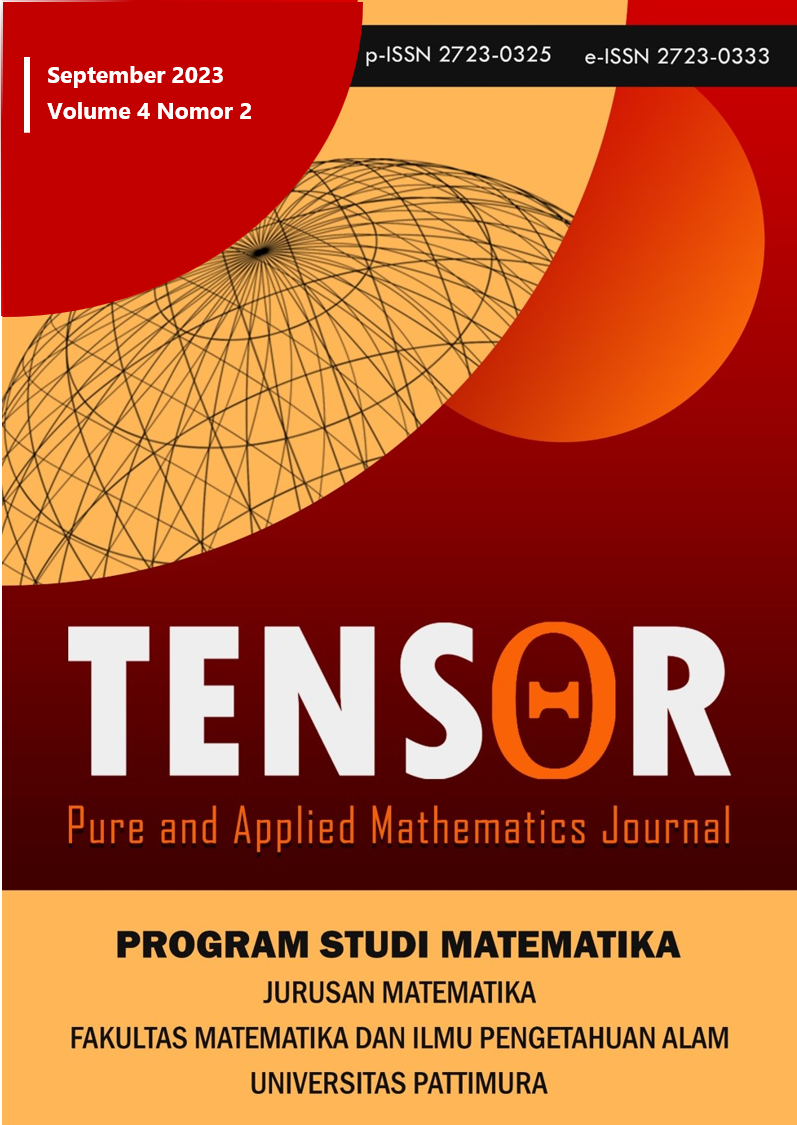Modelling Negative Binomial Regression to Resolve Overdispersion (Case Studi: The Number of Families at Risk of Stunting in Maluku Province in 2021)
Main Article Content
Abstract
Stunting is a condition of stunted growth in children due to some chronic malnutrition and is a serious problem that affects the health and development of children around the world. Maluku Province is one of the regions in Indonesia that also experiences significant stunting problems. Statistical methods that can be used to see the relationship between response variables and predictor variables are Regression analysis, one of which is Poisson regression. However, Poisson regression is not often able to meet the equidispersion assumption, so to overcome this problem, another alternative method is used, namely Negative Binomial regression. The research conducted was to produce the best Negative Binomial Regression model and identify factors that significantly affect stunting families in Maluku Province. This study produced the best Negative Binomial model, namely: with the smallest AIC value of 208.5 and able to correct overdispersion in the data. A significant influential factor in the Negative Binomial model is the age of the wife who is too old ( ) with a significance level of 5%.
Downloads
Article Details

This work is licensed under a Creative Commons Attribution-NonCommercial-ShareAlike 4.0 International License.

